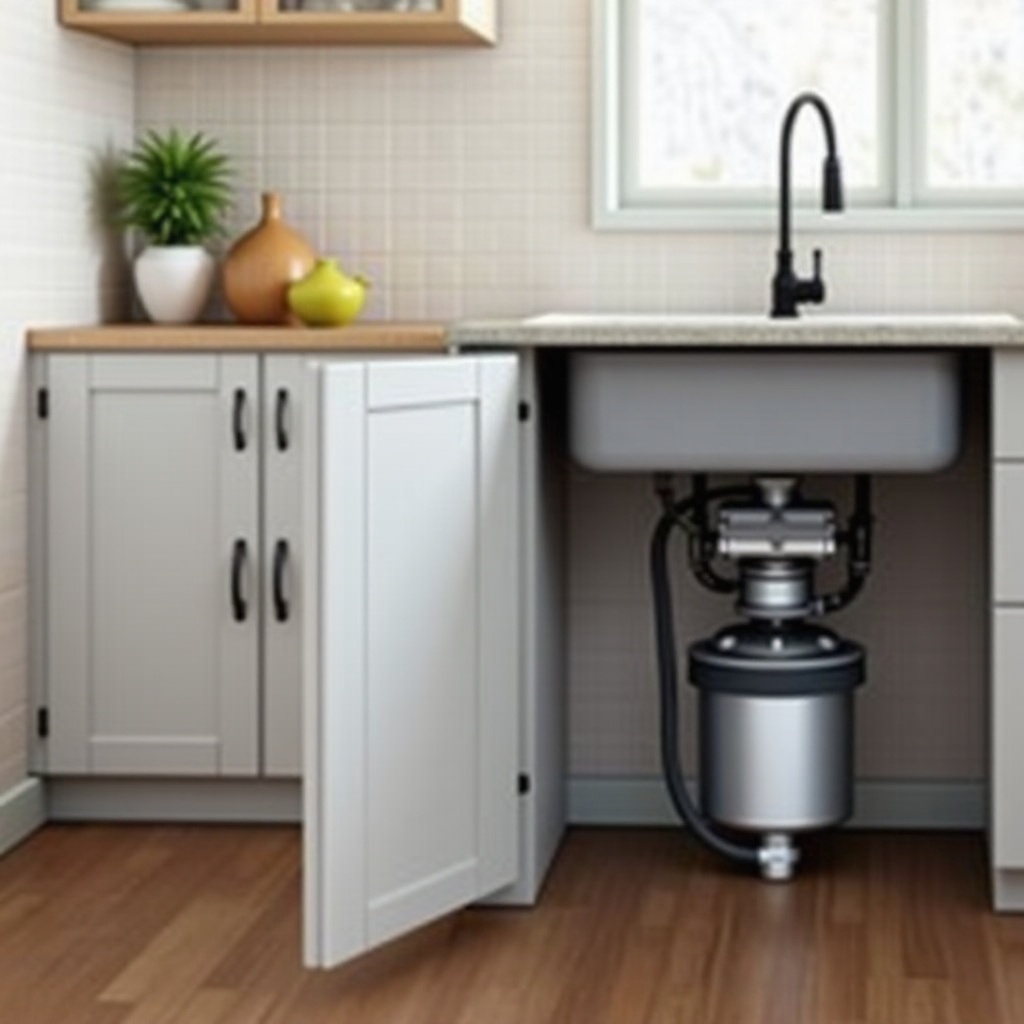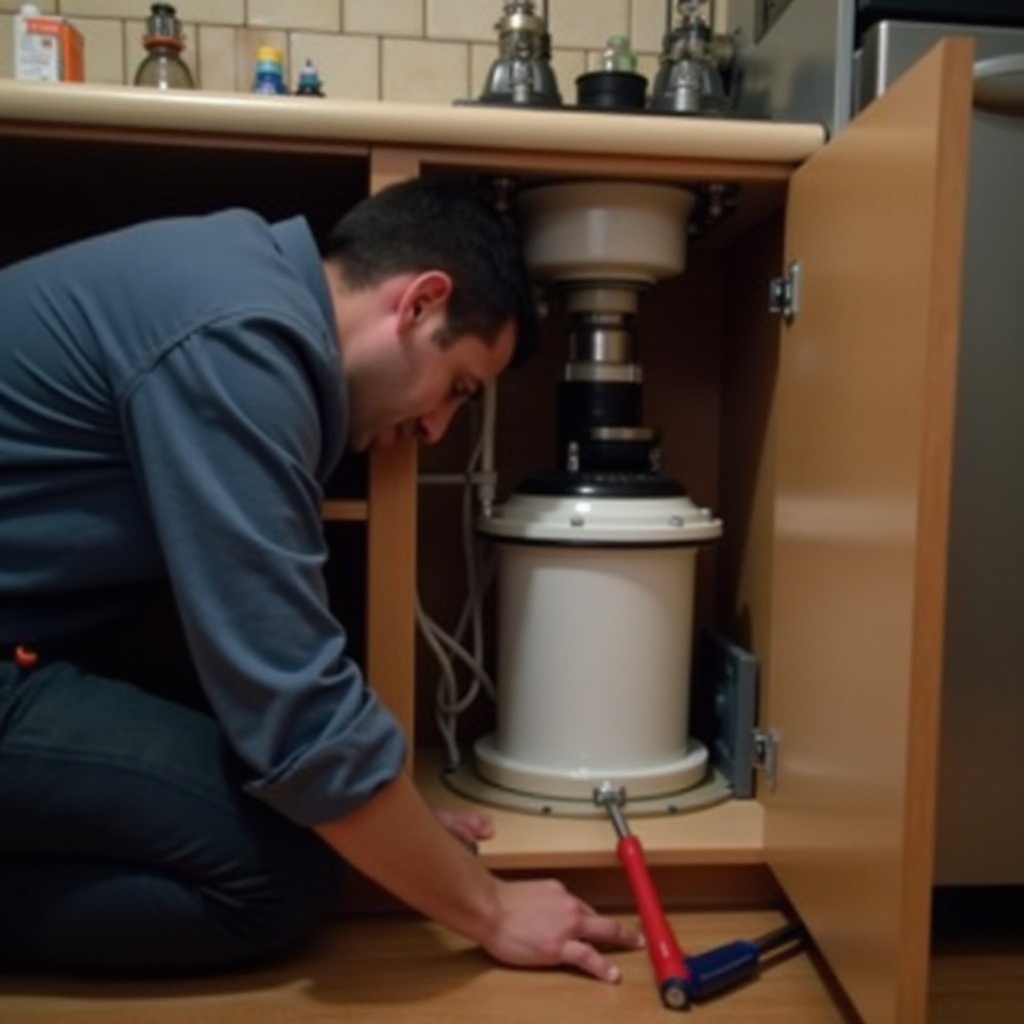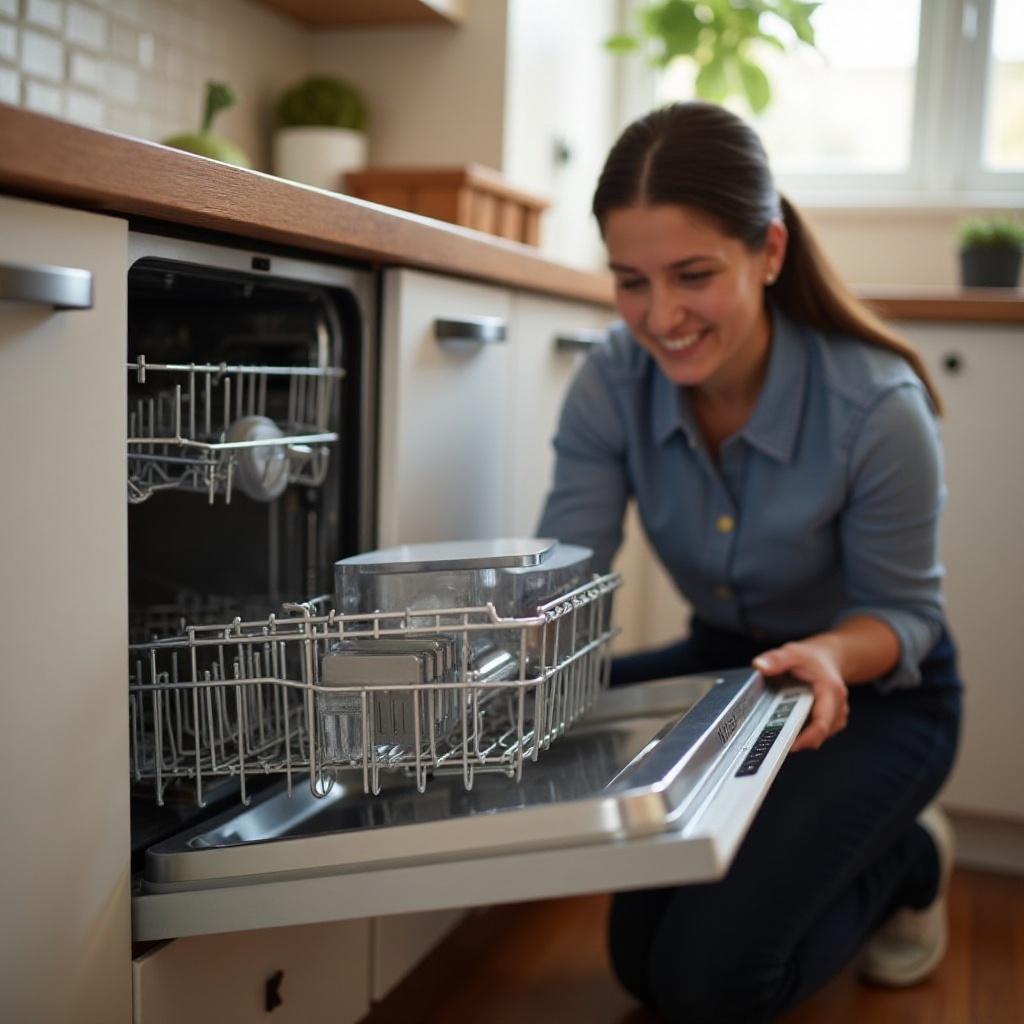Introduction
A dishwasher that fails to drain can be a frustrating problem, especially when it's linked to the garbage disposal. This issue not only affects the dishwasher's efficiency but also indicates potential problems in the garbage disposal unit. Understanding the connection between the dishwasher and garbage disposal, and knowing how to address this problem, will save you time, money, and hassle.

Identifying the Problem
Signs Your Dishwasher is Not Draining
The first step in solving any problem is recognizing it. Some common signs that your dishwasher is not draining include:
- Standing water in the bottom of the dishwasher.
- Water leaking onto the kitchen floor.
- An odor caused by stagnant water.
- Dishes still dirty or covered in residue after a cycle.
If you notice any of these signs, it's crucial to act quickly to prevent further complications.
How to Check the Garbage Disposal
Since the garbage disposal and dishwasher share a common drainage line, a problem in one can affect the other. Here's how to check if the garbage disposal is the culprit:
- Ensure the garbage disposal is turned off.
- Check for any visible blockages or debris in the disposal.
- Use a flashlight to inspect the unit thoroughly.
- Try turning the disposal manually using an Allen wrench in the bottom hole.
If any blockages or obstructions are found, they can prevent water from draining properly out of the dishwasher.
Understanding the Connection Between Dishwasher and Garbage Disposal
The dishwasher and garbage disposal are connected through a hose that drains water from the dishwasher into the garbage disposal. This setup allows for efficient waste management, but any disruption in the garbage disposal can affect the dishwasher's drainage. Proper maintenance of both appliances is crucial for their harmonious operation.

Common Causes of Dishwasher Drainage Issues
Once you recognize the signs and check the garbage disposal, it helps to understand the common causes behind these issues.
Food Particles and Debris
After meals, food particles and debris often end up in the garbage disposal. Over time, these can accumulate and cause blockages. This blockage not only affects the garbage disposal but also impedes the dishwasher's drainage.
Obstructions in the Garbage Disposal
Besides food particles, other items like small utensils, glass fragments, or large chunks of food can obstruct the garbage disposal. These obstructions can cause serious damage to the blades and motor, leading to a drainage problem.
Installation or Connection Issues
Sometimes, the problem lies not with blockages but with installation or connection issues. A poorly installed drainage hose or an improper connection between the dishwasher and garbage disposal can prevent proper drainage. Checking these connections is a vital part of troubleshooting.
Troubleshooting and Fixing the Garbage Disposal
With a clear understanding of the common causes, it's time to move on to troubleshooting and fixing the garbage disposal.
Step-by-Step Guide to Clear a Clogged Garbage Disposal
- Turn Off the Power: Always begin by turning off the power to the garbage disposal to avoid accidents.
- Remove Visible Debris: Use pliers or tongs to carefully remove any visible blockages from the disposal.
- Use an Allen Wrench: Insert an Allen wrench into the hole at the bottom of the unit and turn it to manually rotate the blades and dislodge clogs.
- Flush with Water: Run hot water through the disposal to clear out any remaining debris.
Tools Needed for Unclogging
- Flashlight
- Pliers or tongs
- Allen wrench
- Bucket
- Long-handled brush
Resetting the Garbage Disposal Unit
Sometimes, resetting the garbage disposal can fix minor issues. Locate the reset button on the bottom of the unit, usually a small red or black button. Press it to reset the disposal, which can help clear minor blockages and restore functionality.
Preventive Measures and Maintenance Tips
To avoid these issues in the future, it's important to adopt preventive measures and establish a maintenance routine.
Regular Cleaning Procedures
To keep your garbage disposal and dishwasher running smoothly, regular cleaning is essential:
- Weekly Cleaning: Use a mixture of baking soda and vinegar to clean the disposal. Pour half a cup of baking soda followed by half a cup of vinegar, and let it foam for a few minutes before flushing with hot water.
- Monthly Deep Cleaning: Use ice cubes and rock salt to clean the disposal blades. This will help sharpen the blades and remove any grease buildup.
Best Practices for Using Your Dishwasher and Garbage Disposal
- Avoid Overloading: Do not overload your dishwasher with dishes or your garbage disposal with food waste.
- Pre-rinse Dishes: Remove large food particles from dishes before placing them in the dishwasher.
- Run Disposal Regularly: Run the garbage disposal frequently to prevent buildup and clogs.
Long-Term Maintenance Strategies
- Inspect Connections: Regularly check the hose and connections between the dishwasher and garbage disposal for leaks or loose fittings.
- Use Cold Water: When running the garbage disposal, use cold water to solidify any grease, making it easier for the disposal to chop and clear it.

When to Call a Professional
Despite your best efforts, there might be times when you need professional help.
Identifying When the Problem is Beyond DIY Fixes
There are times when DIY fixes might not be enough. When faced with severe blockages, strange noises, or persistent drainage issues, it’s best to call a professional.
Choosing a Reliable Repair Service
Selecting the right repair service is crucial. Look for:
- Licensed and insured technicians
- Positive reviews and testimonials
- Transparent pricing and warranties
Professional help ensures that your dishwasher and garbage disposal are repaired correctly and efficiently.
Conclusion
Keeping your dishwasher and garbage disposal in top shape requires a mix of regular maintenance and timely intervention. By understanding the interconnectedness of these appliances and being proactive, you can avoid the headache of drainage issues and maintain a smoothly running kitchen.
Frequently Asked Questions
Why does my dishwasher backup into my garbage disposal?
If your dishwasher backs up into the garbage disposal, it likely means there is a blockage in the disposal or a problem with the drainage connection. Clearing any clogs or checking the hose connections can resolve this issue.
How often should I clean my garbage disposal to prevent dishwasher drainage issues?
To prevent drainage issues, clean your garbage disposal weekly using a baking soda and vinegar mixture or ice and rock salt. Monthly deep cleans are also recommended.
What should I do if the dishwasher still does not drain after checking the garbage disposal?
If your dishwasher continues to have drainage issues after checking and clearing the garbage disposal, inspect the drainage hose for blockages or improper installation. If the problem persists, consider professional assistance.
